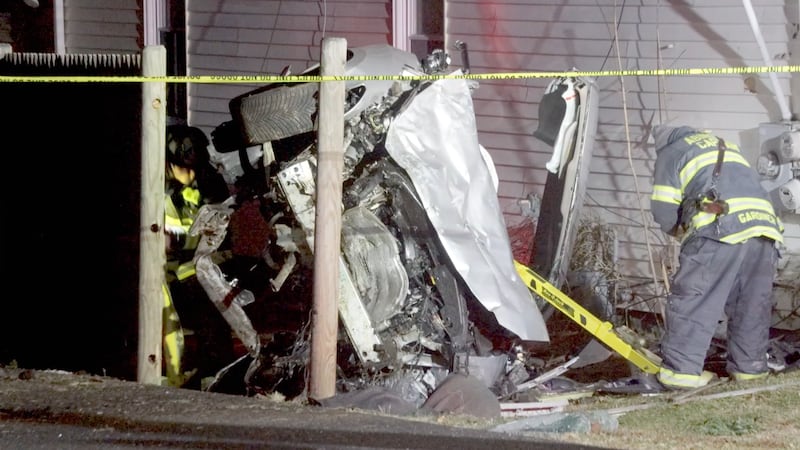RANDOLPH, Mass. — The positivity rate at the Randolph Covid testing site has dropped since just after the holidays, but it’s still an astounding 30-40 percent on a day-to-day basis, said Liz LaRosee, one of the town coordinators.
“We’re taking every precaution,” LaRosee said. “I’ve got all of our volunteers wearing gloves and masks and every morning I say make sure you’re getting yourself a test just to make sure.”
LaRosee said a few staff members who previously had Covid -- and were vaccinated -- got the virus again this holiday season.
I know a few of them had not gotten their booster shots,” she said. “I’m not sure that played a part in it or not.”
It’s hard to say. The Omicron variant seems to have swelled the number of reinfections in the U.K., according to a recent government report. During the entire course of the pandemic, the report found around 270,000 ‘possible’ reinfections. In the last week of 2021, with Omicron dominant, around 60,000 reinfections may have occurred -- or 22 percent of the pandemic total.
To Sean Diehl, Ph.D., reinfections are not surprising -- in fact, they likely happen even with such childhood diseases as chickenpox, he said.
“In reinfection, the definition of that is you got an antigen test or a PCR test from a nasopharyngeal swab showing the virus got in there, said Diehl, an associate professor of Microbiology and Immunology at the University of Vermont. “But it’s not necessarily an indicator that it’s causing disease. So I think that’s kind of the misnomer that I think a lot of people think that if you got infected once before or you got vaccinated that you should never, ever test positive. But we never, ever thought that would be the case at all.”
What was expected -- and seems to be playing out -- is that both natural infections and vaccination are protective during reinfections.
“What the vaccine is doing, still, against Omicron, is preventing the virus from causing serious illness,” Diehl said. “Natural infection is expected to have a large degree of protection against Omicron severe illness. But that is greatly augmented with vaccination.”
As for why Omicron seems able to get past antibodies built up against other variants. Well, for one thing, those Covid antibodies wane over time -- even just a period of months. But Omicron is also a whole different animal, suggested Richard Ellison, MD, an infectious disease specialist at UMass Memorial Medical Center in Worcester -- with more than 30 changes to the spike protein.
“It really changed enough so that a lot of the antibodies that we had that would react to the Delta variant or to the prior variants before that simply did not bind well to Omicron,” Ellison said.
For all the havoc Omicron has done, there’s one thing it likely can’t do, Ellison said -- and that is causing reinfection of reinfection.
“Once you’ve had Omicron you’re probably really well protected against Omicron,” he said.
©2022 Cox Media Group





